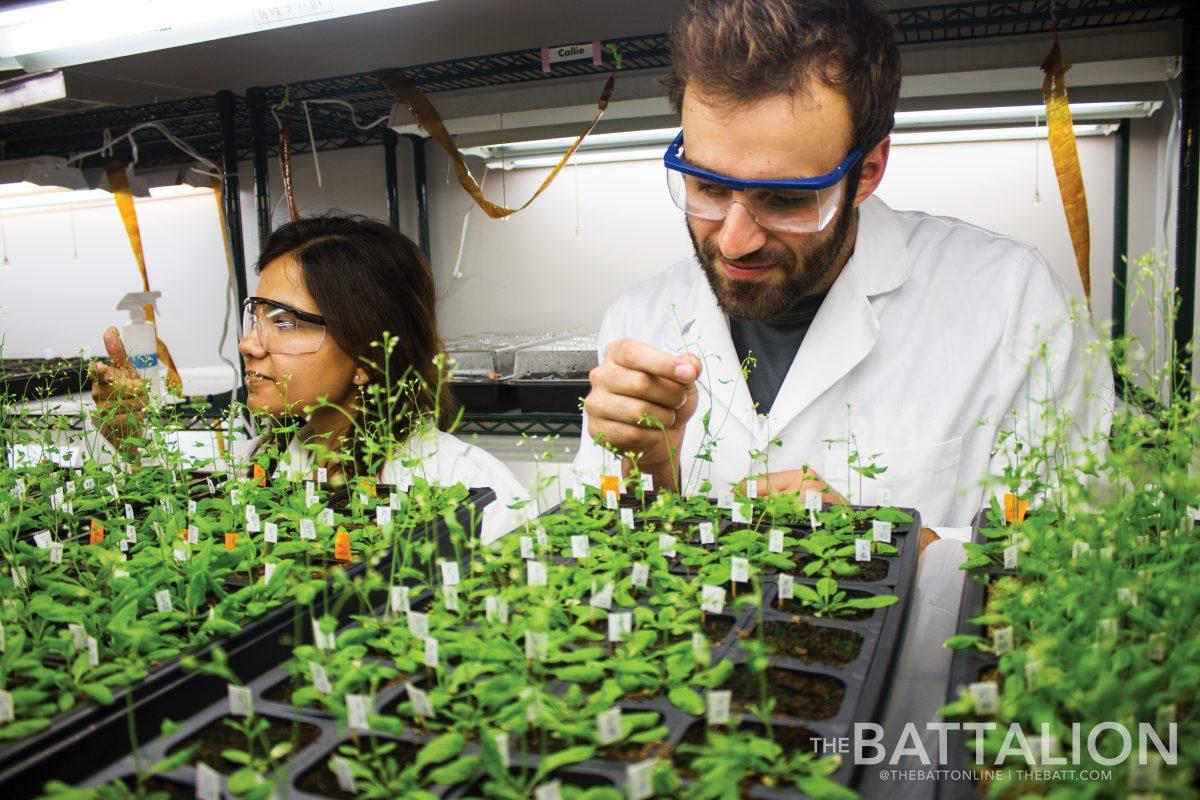Texas A&M now offers a fully online version of the Research Experience for Undergraduates (REU) program due to concerns with COVID-19.
The REU is a national collegiate program that provides research-based internships for undergraduate students studying engineering, according to Michael Demkowicz, associate professor of materials science and engineering. Most undergraduate research internships were cancelled throughout the US due to COVID-19, but several faculty and staff at Texas A&M’s college of engineering decided to create a new program that operates exclusively online.
Demkowicz said the online shift can be a good opportunity for students.
“I think we’re realizing that this is something we can realistically do and we can be effective in it,” Demkowicz said. “There are potential advantages. There’s a niche for it, for something like an online REU program, even after the traditional format becomes possible again. My sense is that it’s unique.”
According to Demkowicz, the A&M branch of REU, which runs from May 26 to Aug. 7 this year, initially required the student participants to spend the internship in College Station and to conduct their research on campus. Face-to-face interaction with other interns was also mandated, as well as personal meetings with faculty members assigned as mentors, but Demkowicz said the outbreak of COVID-19 made these requirements unsafe.
“Almost all of the [REU] programs were canceled, for good reasons,” Demkowicz said. “If you have an REU that requires you to be in the lab doing experiments, and you can’t go to the lab because the lab is shut down, then there’s no way you can have the REU.”
Several faculty and staff worked together to find a way to continue the program, Demkowicz said. The online program was structured so it could be completed anywhere as long as participants had access to a computer and the internet. Training, research, mentor meetings, conferences and all other regular features of REU were recreated to be completed remotely. These requirements made it impossible to conduct research and experimental research, Demkowicz said, but these limitations encourage creativity.
“I think the new constraints increased opportunities for innovation, things like setting up an online conference. I think there’s a need for innovation in that area. How do you reimagine conferences for online remote delivery? What are the hurdles? What are the advantages?” Demkowicz said.
Raymundo Arroyave, an REU mentor, said he enjoys the online format and its challenges.
“This is a cool example of people from Texas A&M leading. This is a pioneering effort,” Arroyave said
Ulisses Braga-Neto is also an REU mentor and said he was very happy when he heard the news of the move to online. Braga-Neto said the obstacles that come with online research are good for students as well.
“I like to engage the undergraduate students, give them this outside-of-the-classroom experience, and motivate them to learn new things they wouldn’t normally learn in a classroom. I think it’s a great program,” Braga-Neto said. “Students have a great opportunity to do research here. We have world-class expertise at Texas A&M. Students, don’t be shy. Talk to the professors.”
Computer engineering sophomore Aaron Barbosa, an REU intern, said the online transition seems to be successful and has encouraged others to apply for the internship.
“It’s a very well-executed program,” Barbosa said. “Everything seems easy to do, everything’s intuitive. It’s very educational and I really like that.”
Nicholas Borynack, also an intern, agrees. Borynack is an aerospace engineering senior and is currently working on an REU project that involves data analysis and said he is impressed with how easily he can complete his research online.
“The people who have put together the program have really done a great job and kept a positive outlook on the situation and allow us to continue doing our research, and I think that represents the perseverance of adversity that’s kind of a core value at Texas A&M,” Borynack said.
Arroyave echoes the idea of perseverance. He said coordinating the online transition was no simple feat, because it requires frequent communication, technical expertise and fresh ideas.
“The online REU is just an example of how when a moment of crisis comes, you can create something positive out of the negative by being resourceful and creative and by not giving up, and I’m really proud to be part of this effort,” Arroyave said.
Engineering research program moves online
June 28, 2020
Photo by Photo by Meredith Seaver
Graduate student Borja Barbero said the research team discovered a unique trait that prevents DNA from being damaged.
0
Donate to The Battalion
$2165
$5000
Contributed
Our Goal
Your donation will support the student journalists of Texas A&M University - College Station. Your contribution will allow us to purchase equipment and cover our annual website hosting costs, in addition to paying freelance staffers for their work, travel costs for coverage and more!
More to Discover










